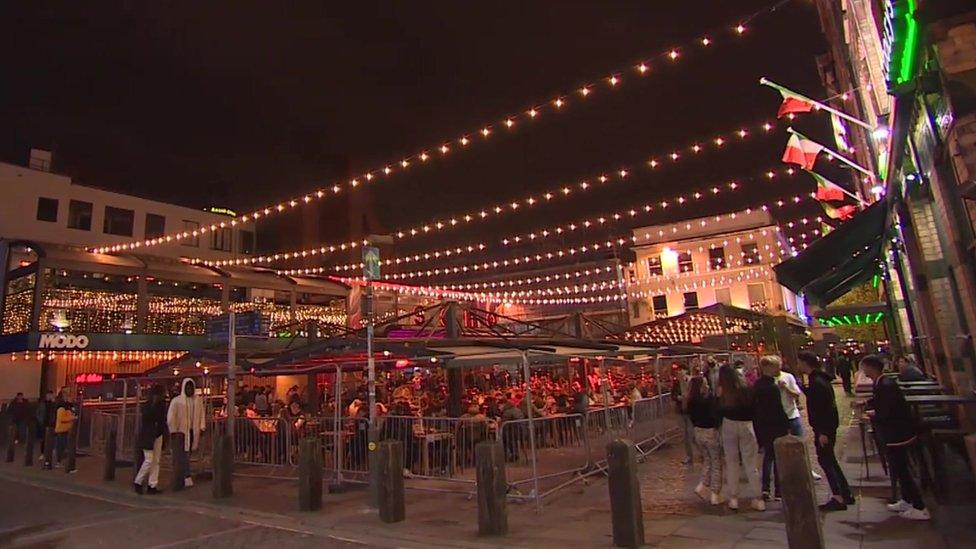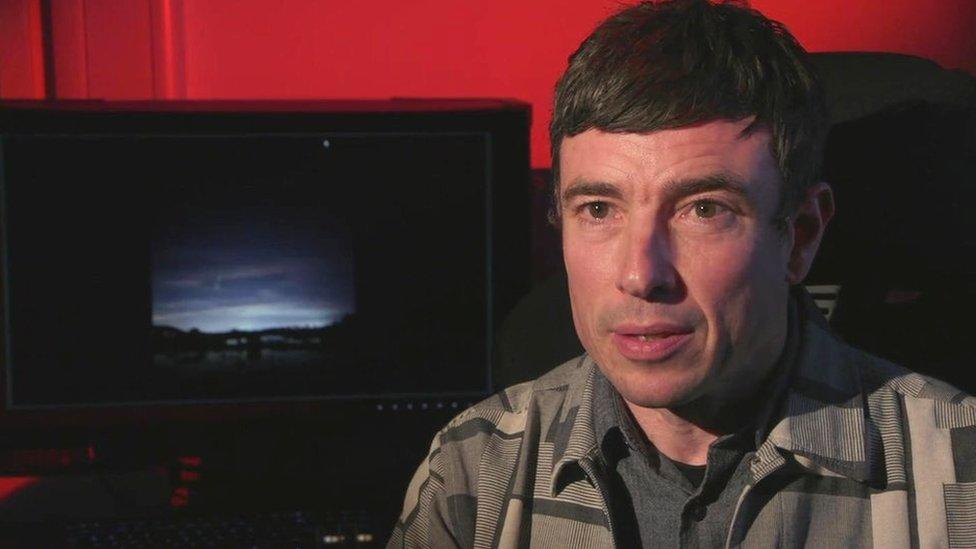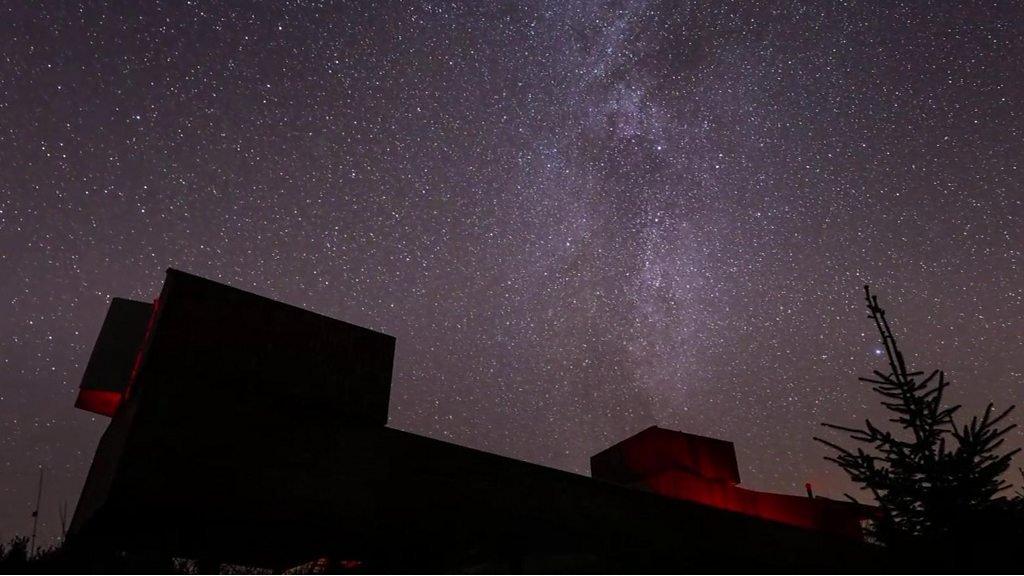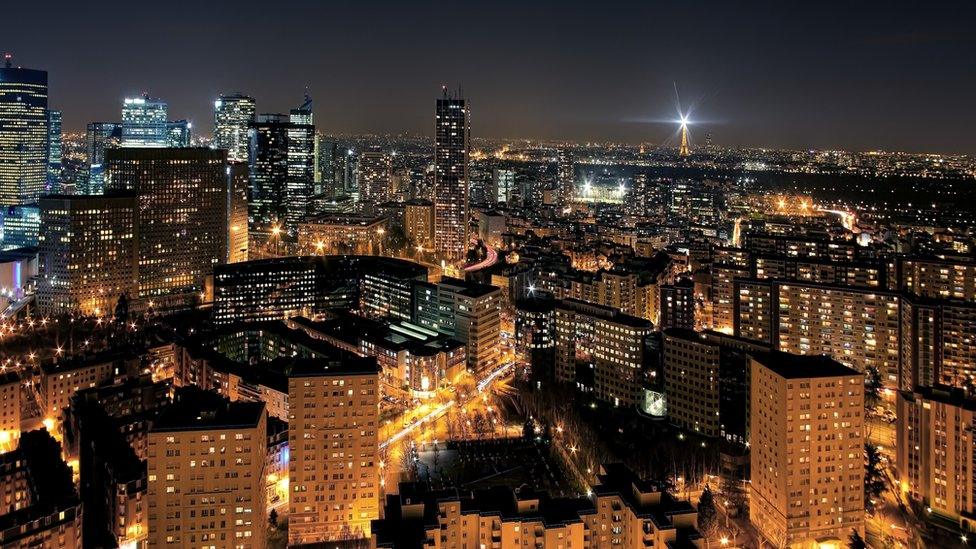Lancaster University sets up UK's first light pollution study centre
- Published

Lights including street lamps and advertising boards all combine to pollute the night sky
The UK's first research laboratory looking the impact of light pollution on human health and nature has been set up at Lancaster University.
The Dark Design Lab will study the adverse effects of too much artificial light in towns and cities.
Prof Nick Dunn said "protecting dark skies" is crucial to human health and the project will work with town planners to combat the problem.
"Light and dark is essential to us as human beings," he said.
"People who are exposed to excessive illumination at night, they're having their biological clocks go out of synch.
"If we get rid of dark skies than actually what is happening to us as humans is potentially very serious health consequences."

Professor Nick Dunn is leading the project
Prof Dunn, director of the laboratory, said 83% of the world's population live under a light-polluted sky, which rises to 99% of people in the UK, Europe and North America.
While he said he did not want to see cities plunged into darkness, the impact of artificial light also affects wildlife and can disrupt behaviours of migration of predation and mating.
"We want our cities and other places at night to be safe and inclusive for everybody," he said.
"But what we do need is responsible, lighting, so that we can make sure we have environments that are beneficial to all, but also for the many creatures that we share this planet."

Why not follow BBC North West on Facebook, external, Twitter, external and Instagram, external? You can also send story ideas to northwest.newsonline@bbc.co.uk, external
Related topics
- Published26 August 2021

- Published6 April 2021

- Published29 October 2020
